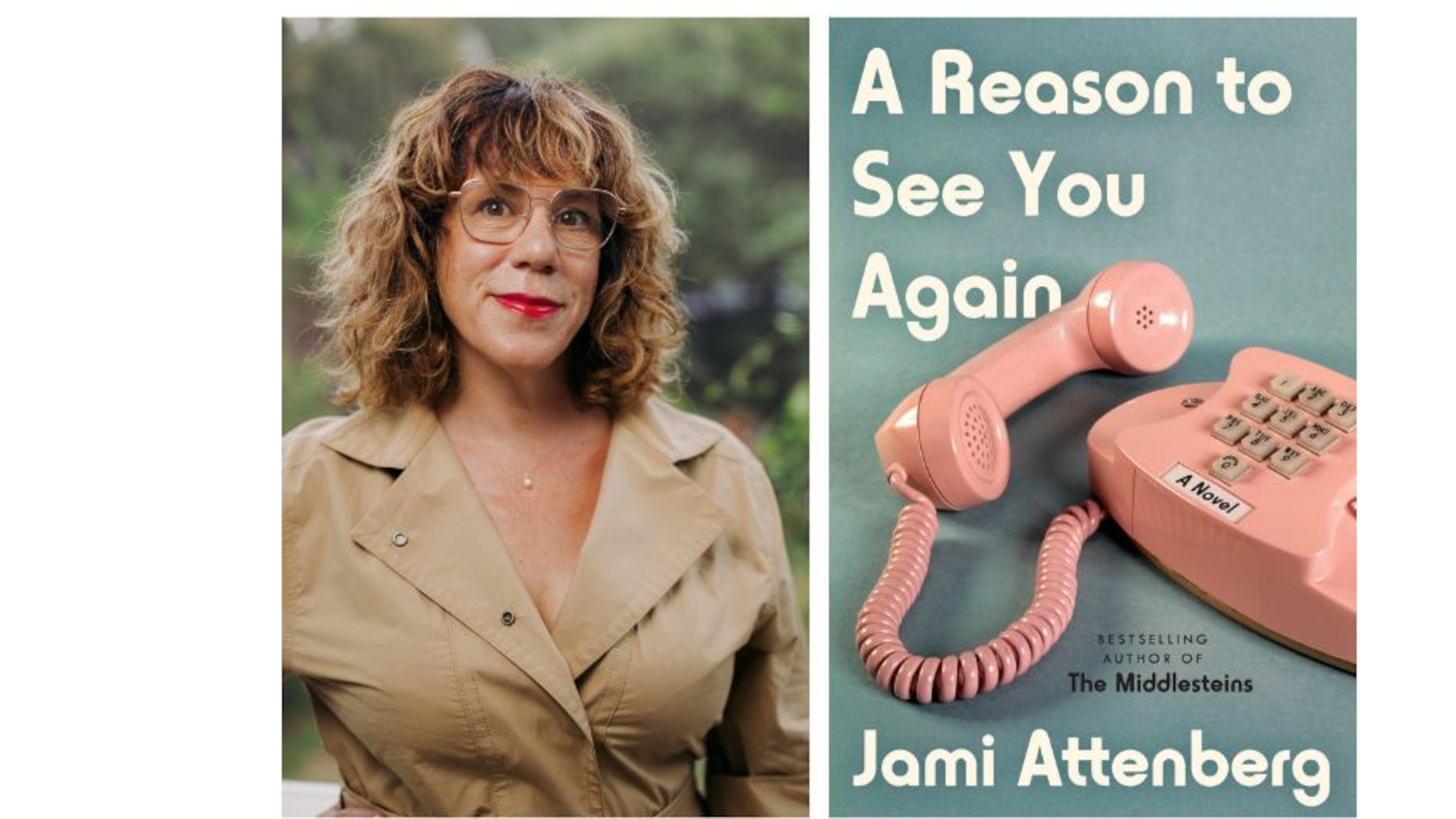Bookshelf: Family dynamics bristle in ‘A Reason to See You Again’

Families are like snowflakes: No two are alike. That’s why countless novels have been written about family dynamics. It’s such a rich topic.
The argument over nurture vs. nature aside, our identities are molded in large part by our families, whether in accordance with them or in opposition to them ― or a combination of both. Even missing family members shape us by their absence. Add generational trauma to the mix, and you’ve got the makings for a steady stream of compelling stories.
One of literary fiction’s finest authors on the topic is Jami Attenberg of New Orleans, and her latest, “A Reason to See You Again” (Ecco, $28), does not disappoint.
Spanning nearly 40 years, this slim but mighty novel follows the exploits of the Cohen family with a focus on the mother and two daughters.
The book opens on an idyllic scene ― a nuclear family of four playing Scrabble together in 1971 Chicago. Father Rudy is the only noncompetitive member of the family. A Holocaust survivor who’s sickly, he is the gentle, loving glue that holds the family together. Nevertheless, his closeted activities render his marriage to Frieda a passionless union. She copes by drinking too much and being hypercritical of their children.
Oldest daughter Nancy is average in looks and school; a “tidy girl. Demure, pretty.” Shelly is the golden child; brilliant, particularly in math, and intense, even as a child. Both are plotting their escapes: Nancy with her boyfriend Robby; Shelly through education and a career.
When she realizes Shelly is about to beat her at Scrabble, Frieda bumps the board and ruins the game, setting into motion this taut, peripatetic, POV-hopping tale.
By the second chapter, Rudy is dead, marking the end of an era in more ways than one. Without the compassion he brought to the home, the family becomes untethered as the women spin off into separate trajectories in opposite corners of the country.
Thematically speaking, Rudy’s death also coincides with a societal shift in the evolution of the family structure. Divorce rates are beginning to skyrocket. Families are moving with more frequency and greater distances away from each other to pursue education and careers. Technology is changing the ways families communicate. All of those things play a role in the choices these women make.
As the Cohen women age, they couple up, procreate, build careers and make lifelong friends. In the process, the novel opens up to encompass not just blood family but the family one chooses in its exploration of relationships between mothers, daughters, sisters, lovers, friends and colleagues.
The world these women live in is a frenetic one. Everyone seems to be in constant motion, either driving in cars or flying in from somewhere as they flit back and forth from Chicago, Seattle and Miami to Houston, London, New York and New Orleans. Their interactions are mostly conducted over the phone long distance or condensed into short, tense visits, and they’re often competitive and judgmental in nature.
Despite how miserable and contentious these women are, the reader can’t help but root for them. The relief is palpable when cracks of compassion finally show through their emotional armor. In Attenberg’s able hands those moments are never sentimental. Instead they are infused with an edgy unease, making them feel hard-earned and authentic.
The saving grace in Nancy and Shelly’s relationship is that no matter how hostile things get between the sisters, they always tell each other the truth. And although Shelly chooses career over family, she respects Nancy’s more traditional path.
“I’m glad someone cares enough to make this kind of life happen,” she muses. “Having a family was like having an extra spine. If it was strong. If it could hold together.”
Suzanne Van Atten is a book critic and contributing editor to The Atlanta Journal-Constitution. She may be reached at Suzanne.VanAtten@ajc.com.


